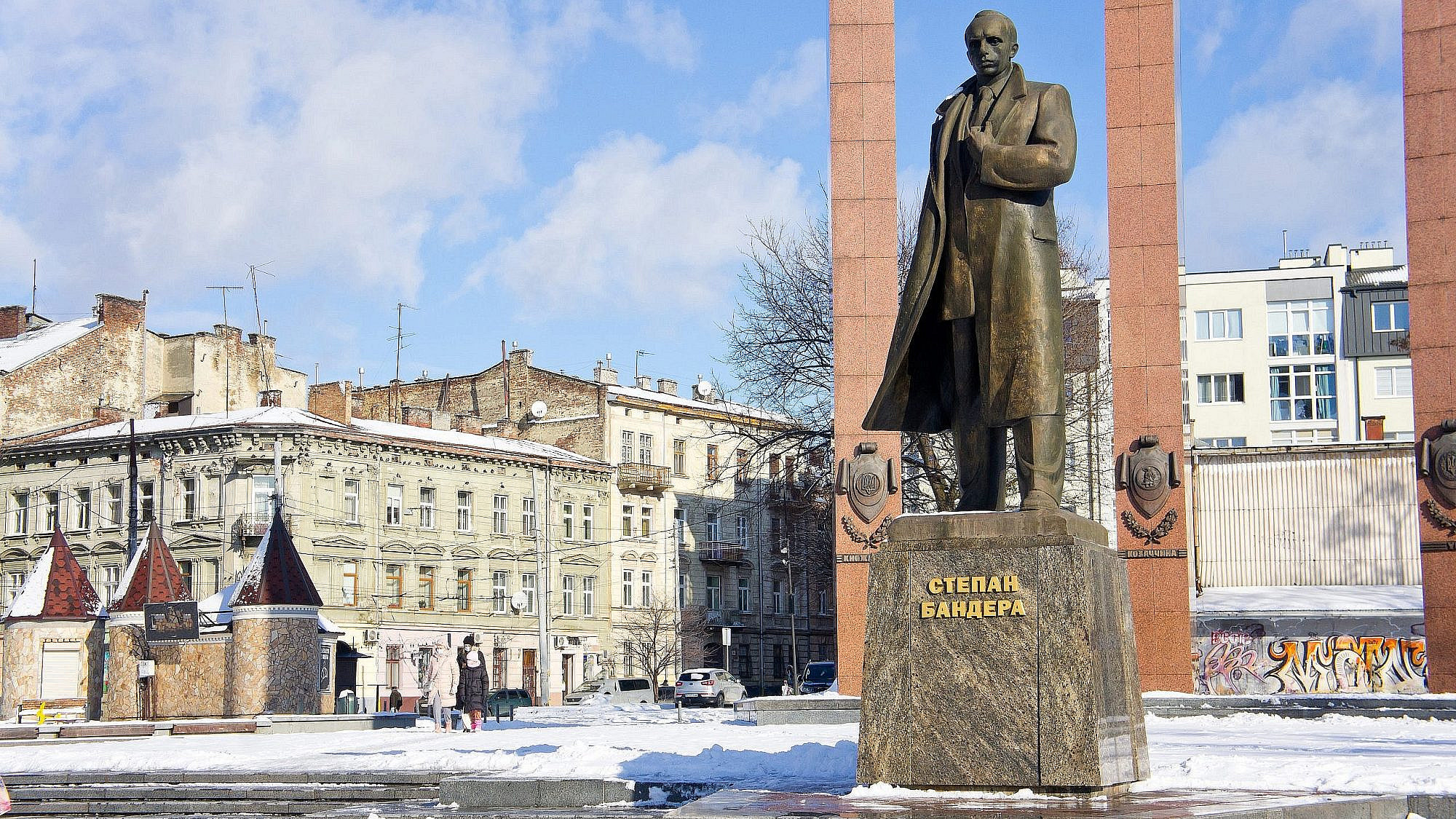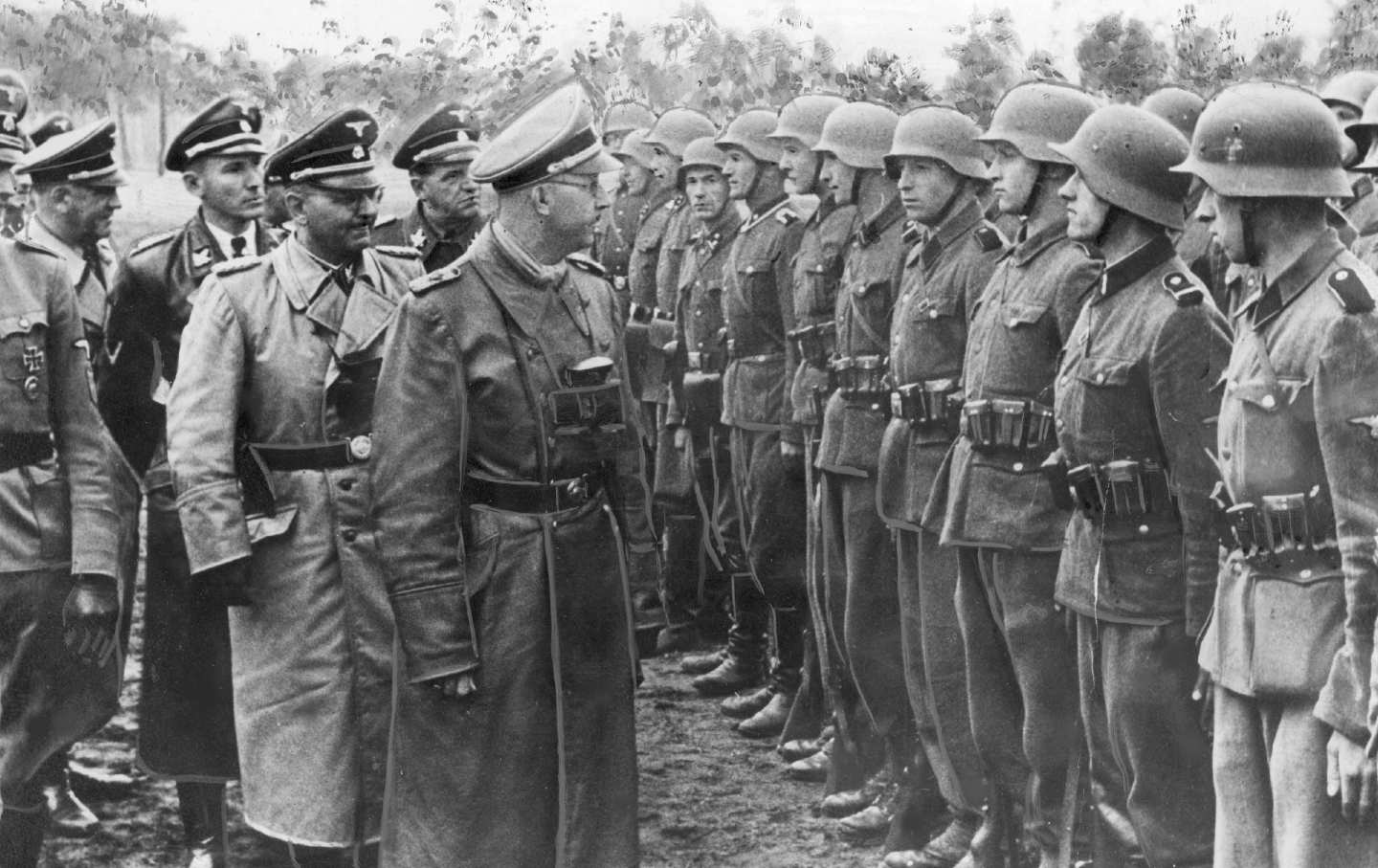Enemy Archives -- Rewriting History the Ukrainian Nationalist Method
"It is very disappointing to see that some are willing to use this moment of great public support for Ukraine in its fight against Russian aggression as an opportunity to rewrite Ukrainian history, and specifically to whitewash the involvement of Ukrainian nationals in the commission of genocide against Ukrainian Jewry.""This book got a platform it never deserved given the outright misinformation it contains, and we are glad to see this problem being rectified as institutions take a closer look at the book and its dangerous and outrageous claims."Jaime Kirzner-Roberts, senior director, policy and advocacy, Friends of Simon Wiesenthal Center"The excerpt [published on February 9, 2023 from Enemy Archives] included a paragraph disputing the view that the Second World War era Organization of Ukrainian Nationalists were Nazi collaborators.""However, we recognize that this collaboration has been established by prior scholarship."Rob Roberts, editor-in-chief, National Post"[Enemy Archives was rigorously examined before being released]. The path of Ukrainian nationalism and its intersections with Jewish history over the past century is often challenging and difficult to reconcile, with significant impacts on current political events in the region.""There are inherent yet necessary risks in this area of study, and to participating in the contentious academic and public debates about how to tell these histories to advance understanding of both the past and present."Lisa Quinn, executive director, McGill Queen's University Press
 |
| A monument to Nazi sympathizer Stepan Bandera, hailed as a national hero of Ukraine, in Lviv, Ukraine. Credit: Shutterstock. |
The American Library Association, the largest library association in the world, in late January awarded a book, Enemy Archives,
edited by Royal Military College professor Lubomyr Luciuk and Ukrainian
historian Volodymyr Viatrovych, honours placing it on its list of the
best historical materials for the years 2022 and 2023. It has now
rescinded that award following criticism by Holocaust scholars who
expressed grave concerns over the book's whitewashing of Ukrainian Nazi
collaborators during the Second World War.
"We
apologize for the harm caused by the work's initial inclusion on the
list. The committee will be reviewing the award manual and procedures",
stated Jean Hodges, director of communications for the library
association. For his part, Professor Luciuk responded to the pulling of
the award by the library association as a "perplexing" decision; that the book should be read by those doubting its veracity to avoid "misrepresenting" its contents.
The book in question, Enemy
Archives: Soviet Counterinsurgency Operations and the Ukrainian
Nationalist Movement -- Selections from the Secret Police Archives,
includes and discusses the Organization of Ukrainian Nationalists,
along with addressing issues related to the Ukrainian Insurgent Army
which many Ukrainians view with pride, believing those who were part of
these organizations were heroes, fighting against the Soviets.
Who were, at that period of history, part of the Allied Forces fighting Nazi Germany.
These
are the same 'heroes' whom Holocaust scholars, Jewish groups and the
government of Poland label Nazi collaborators, involved in the mass
slaughter of up to 100,000 Poles and Jews during the Second World War.
The Jewish News Syndicate news agency and Friends of Simon Wiesenthal Centre took notice when an excerpt from Enemy Archives was published in the widely-read national newspaper, the National Post.
The book was published by McGill-Queen's University Press. "I am frankly surprised McGill Queen's Press [would] lend itself to this form of memory activism",
commented Per Anders Rudling, professor at Sweden's Lund University in a
statement he issued regarding the book. Professor Rudling has
extensively studied the issue of Nazi collaborators.
Those
who support the contents and assertions contained in the book focus
attention and anger on Lev Golinkin, a writer of Ukrainian Jewish
heritage, blaming his intervention and influence for the decision the
American Library Association reached to withdraw the award they honoured
the book with. An April 10 article published in the U.S. publication, The Nation, saw Mr. Golinkin argue that the book whitewashed Nazi collaborators.
Which
led the Council of the Ukrainian Library Association to launch an
appeal of the decision made by the American Library Association,
claiming that Golinkin is simply backing pro-Russian propaganda.
Golinkin, who has invested time and energy in anti-Russian protests.
A
social media response to the situation where a Ukrainian commentator
pointed out that Golinkin is a Jew and a parasite was re-posted by the
book's co-author Volodymyr Viatrovych. Adolf Hitler was given to
referring to Jews as parasites, justifying their annihilation by his
state-inspired industrialization of genocide.
Coincidentally
that same social media account accused another Ukrainian Jew with a
history of speaking out about the history of Nazi collaborators, of
being a parasite as well.
Get the picture?
 |
| Nazi Minister of the Interior Heinrich Himmler inspects the Ukrainian volunteer Galicia Division of the SS in May 1944. (Via the Polish National Digital Archives) |
Labels: Enemy Archives, Lubomyr Luciuk, Re-writing World War II History, Soviet Counterinsurgency Operations and the Ukrainian Nationalist Movement, Ukrainian Fascists, Volodymyr Viatrovych

<< Home